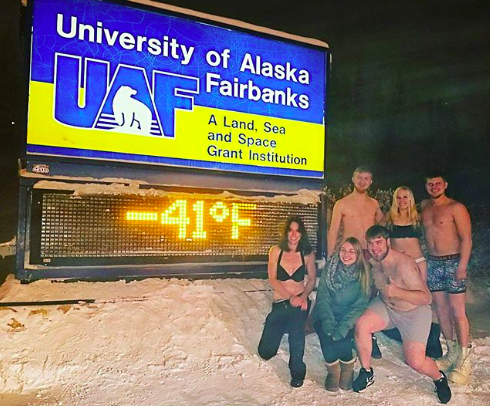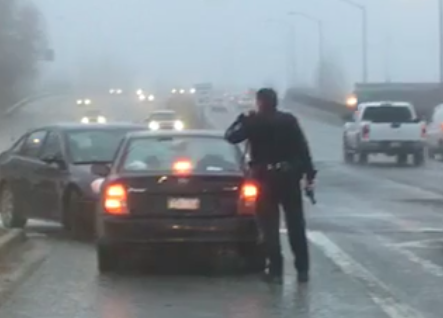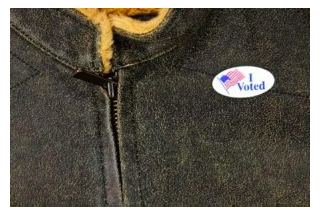CLIFF NOTES: MEN ARE INHERENTLY BAD
If you didn’t take the training before Oct. 31, signing up for spring classes at the University of Alaska system just got harder.
Students at Alaska’s public university are now required to complete “Title IX” training months before they take courses.
“Title IX Training: Sex and Gender Based Discrimination” is intended to create a safer and healthier campus environment, where everyone “can live, study, work and have fun safely,” according to the university web site. It’s now mandatory for all faculty, staff, and prospective students, who have to clear the hurdle well in advance.
“I have never done a training so jam packed with such a high amount of illogical false-science and propaganda. There are more efficient and personal ways to combat the issues this training addressed,” said Chaz Rivas, a student at the University of Alaska Anchorage. The senior political science major is involved with campus Republicans and works as a political consultant, and he’s got a keen antenna for all things that are political in nature.
Rivas suggests a simple course in manners is all that’s really needed.
But this is 2017, and manners went out with the ’60s. Now, before attending college, students are taking courses in how not to rape each other.
Rivas said that the training modules portray men as predatory. As bystanders, the students are trained to assume that men have predatory intent and to deputize themselves to thwart them.
One scenario presented in the modules has a normal-looking male and female student at a party, and when the male steps away to get the female a drink, bystanders (the test taker) should immediately be suspicious he might drug her. The student taking the course is asked to rate how likely they are to protect Jane from predator Matt.
The undercurrent of all this is that Jane cannot take care of herself. Helpless and gullible, she needs protection from presumptive predator Matt, who could be a serial rapist.
“They are basically creating a culture of suspicion, so that anyone trying to do anything is perceived as being predatory,” Rivas said. “They take very normal situations and train you to be an advocate.”
The training also breaks down how to communicate with various gender identities such as gay, transgender, transqueer, non binary, and the other ever-multiplying forms of gender expression. These people need to be communicated with differently than straight people, according to the training.
Accomplished online within an hour and a half, the mandatory training includes scenarios to consider and surveys to measure participants’ attitudes and behaviors.
Plus there are prizes for taking the mandatory course:

Anyone who is made to feel uncomfortable by the training is instruction to stop it and “contact our Employee Assistance program at ComPsych® directly 24 hours a day, 7 days a week, at (866) 465-8934 or use the TDD at (800) 697-0353, or the Student Health and Counseling Center at 907-786-4040, option 3.”
Although the training deadline has passed for Spring enrollment, prospective University of Alaska students can make arrangements through their campus Title IX coordinator to take the course in person.
Line forms on the left.
















